Matt Johnson, leader of The The, will be in Switzerland on June 29, on stage at X-TRA in Zurich. He honors us by revisiting some of the most beautiful pages in the group’s history, while evoking the human adventures that have marked his life—the very ones that gave him the strength to compose and reinvent himself.
From Trump’s United States and his predecessors, where he has lived, to Sweden and Spain, which temporarily diverted him from a United Kingdom that he sees crumbling under liberal pressure, his view is resolutely political. But music, omnipresent, becomes a mirror of the upheavals of an era: civilizational mutation, digital acceleration, and the drifts of a world where we risk becoming dependent on uncontrolled forces if we are not careful.
Without detours or pretense, Matt Johnson delivers raw, engaging words that make you want to listen and feel. Ensoulment, his latest album, brings together several historical musicians from The The as well as a new guitarist, recommended by Johnny Marr, longtime companion, both once a pillar of The The and an emblematic figure of the Smiths.
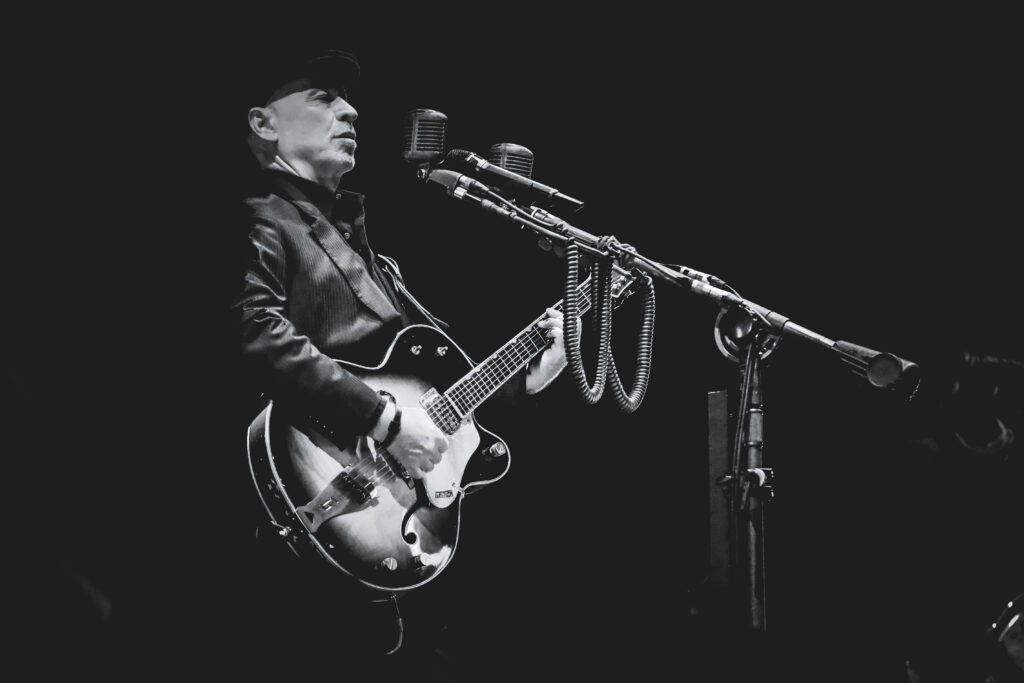
David Glaser: Very happy to talk to you, Matt. Especially because I love the album. Probably.
Matt Johnson: Oh, thank you.
David Glaser: And I’m sure you must be getting the same kind of feedback since you released it.
Matt Johnson: We’ve had very positive feedback, thankfully. Yes, the record is being very well received.
David Glaser: So how do you explain this somewhat jazzy orientation with a moderate tempo, yet songs deeply rooted in the world as it is today. Do you think you were particularly inspired by what was happening around you to write these songs?
Matt Johnson: Yes, I’ve always tried to write like that, obviously a certain part of my songs concerns my inner world, but they also simultaneously talk about the world around me. And I think throughout all my albums, I’ve always tried to acknowledge, write about, and try to understand contemporary events. And as the great American singer and songwriter Nina Simone once said, every artist has a duty to reflect the times in which they live. And that’s all I’m trying to do, really, whether it’s in 1986, 1994, 2000, 2024, 2025. I’m just trying to write about the world I see around me.
“Every artist has a duty to reflect the times in which they live”
Nina Simone
David Glaser: Yes, I was going to say that I discovered your music when I was a child. It was the Mind Bomb album. And “The Beaten Generation” was playing on a radio station in the north of England. I really liked it as something very raw, very pop, understandable for someone who doesn’t understand English very well. And that’s what I still feel now listening to your songs. You find the right words to make them understandable for everyone, a mix of poetry and also the right words, simple words. Would you agree with that?
Matt Johnson: I’ve tried to write simply. One of my greatest influences and inspirations as a writer growing up was George Orwell, who was able to convey the deepest and most powerful ideas with very simple language. And that was one of his methods, really, and one of his ways of communicating was not to use 2 or 3 words when one would suffice. And not to use overly complicated words where a simple word would do. So the goal is communication. And, you know, personally, I don’t want to be obscure for the sake of being obscure or alienate people. I’d like to communicate thoughts and ideas, and the best way to do that is through direct music and lyrics. Really.
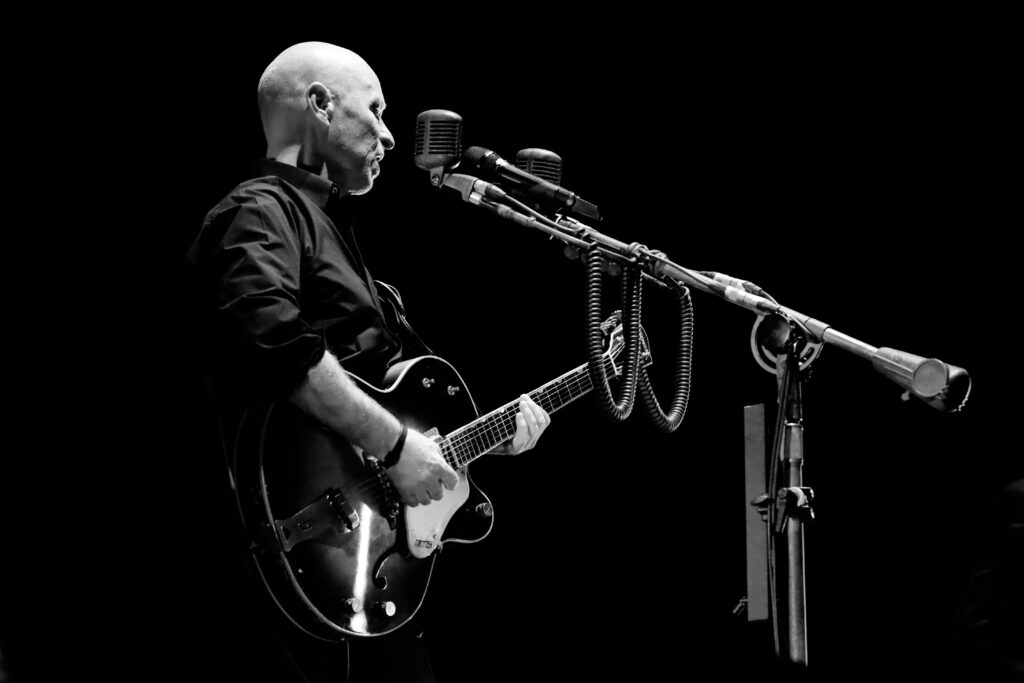

David Glaser: Yes. And I would say there’s a certain rhythm. Also, if you listen back and forth to the songs on Ensoulment, they are combinations of words that sound and resonate with a lot of contrasts or contradictory words. You play a lot with words and it seems to be a poetic constraint, but I feel that it’s been in your nature since you started writing songs.
Matt Johnson: Yes. You know, lyrics have always been a very important part of the songwriting process for me. And I try to write lyrics that can stand on their own without the music. I like that you can read them without melody or music, and they still make sense and convey the message. And so it’s important to me that the words are able to stand alone without music. With music, they can hopefully become even more expressive.
David Glaser: I want to hear you talk about England and Great Britain right now, because I felt that in some songs you describe your life, and sometimes with a bit of nostalgia wondering what London has become, for example, or what has become of this England that was represented by Boris Johnson, Liz Truss or Rishi Sunak recently. What does that inspire in you? The place where you live in England, is it important for you to observe and criticize what it is becoming and what your country is becoming?
Matt Johnson: Yes, well, I’ve always written about England in these terms, you know, songs like “Heartland,” “Perfect,” “The Beat(en) Generation,” “Pillar Box Red”… So I’m well aware that we all suffer from a certain degree of nostalgia. It’s part of the human condition, you know, the world in which we grew up. Even if time seems very different. Time has a very different quality when you’re a child. A year seems to take a long time, from birthday to birthday, from Christmas to Christmas, for example. When you’re a child, it seems to take forever. When you’re an adult and getting older, time passes faster and faster. And so you realize that this nostalgia is part of the human condition, and that the only thing that remains the same is change. And change happens very quickly and has happened more and more quickly due to technological advances, particularly throughout the 20th century and now in the 21st century.
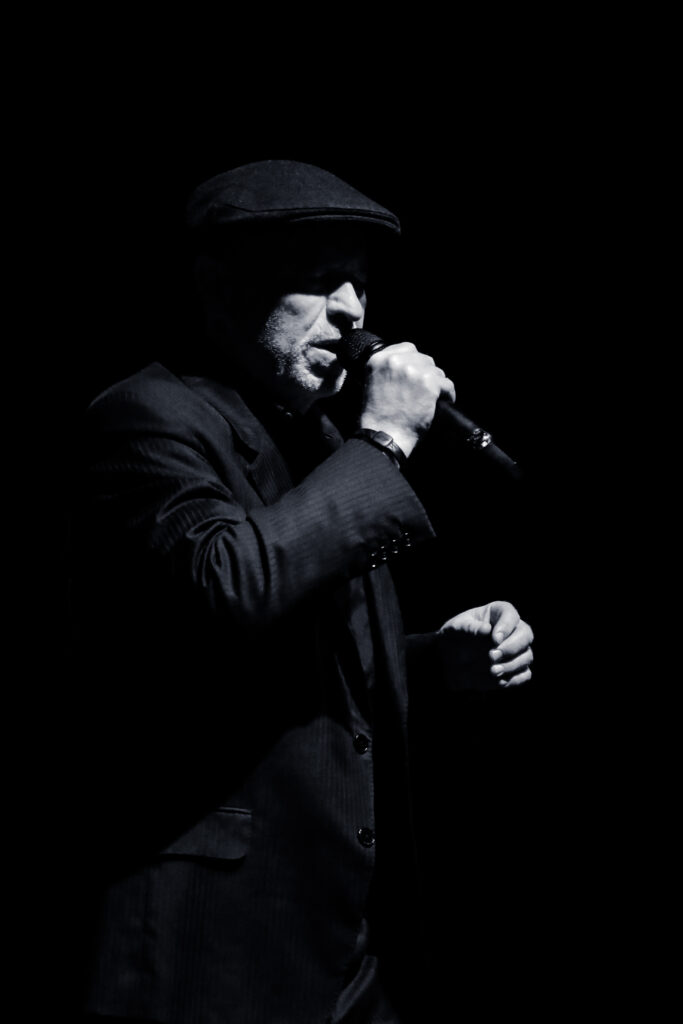
And so the quality of nostalgia is something we seem to be born with. I’m not trying to look at the past through rose-colored glasses, but one wonders if certain qualities aren’t lost, and although I’ve lived in different countries, I’ve lived in America, Sweden and Spain, I’m English, and I know this country better than any other. And I think there are certain qualities that have been lost, particularly since the rise of neo-conservatism and neo-liberalism in the 1970s. For example, the sale of public assets, assets that belonged to the public. Privatization and the consequent transfer of wealth and property from the population to corporate interests. That has changed the quality and standard of living in the country.
You know, and I know that in the 1980s, they started selling a lot of land belonging to the school system, playgrounds in schools to build more offices and apartments on these plots. And so these are qualitative changes that I have experienced in my own life. There are things that have improved living in London. I would say the quality of food, restaurants, is much, much better than it was, say, 30 or 40 years ago. So there are these sorts of qualities that we have. The communication we now have through mobile phones and the Internet, and access to information has increased considerably. But information doesn’t necessarily correspond to knowledge or wisdom, of course. And so there is a flow of information, infotainment, disinformation and misinformation, which comes from various sources, including the government itself. One of the main providers of disinformation and manipulation of the public.
So things change and things always change, and life has always changed. But we can only comment on events that occur during our own lifetime. You know, I don’t know the world of the 1950s or 1850s or 1700. I wasn’t alive at that time. I see what has changed for the better, and I see what has changed for the worse.
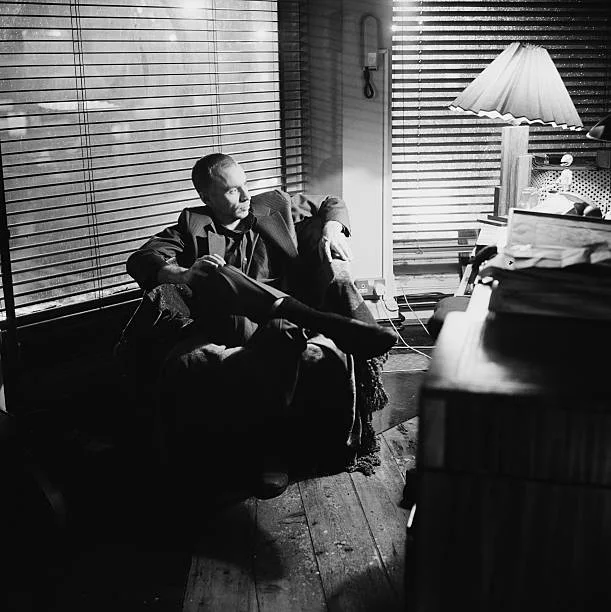
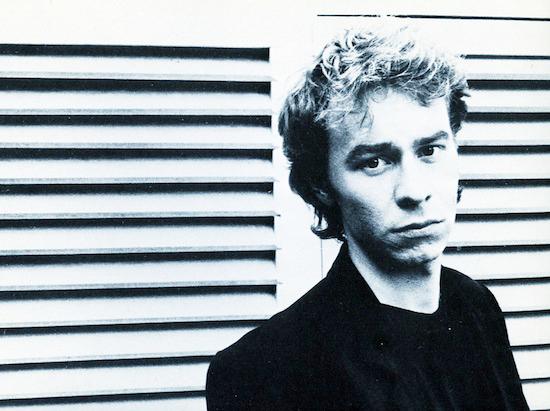
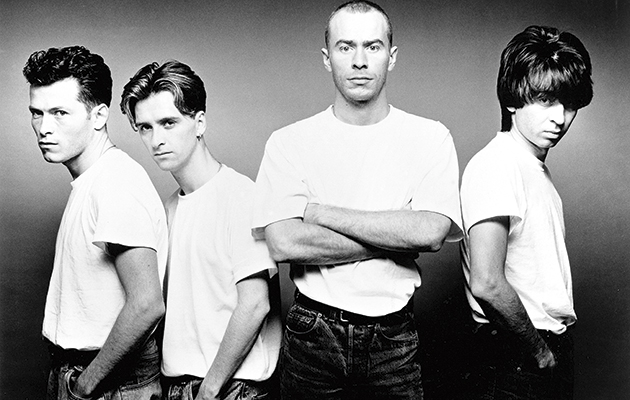
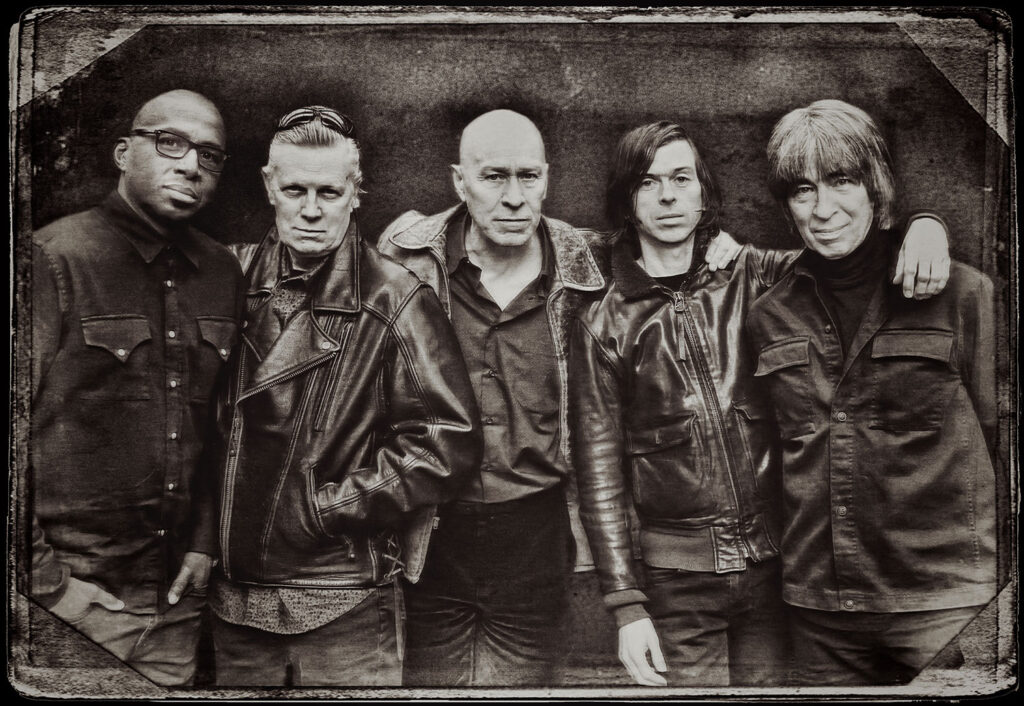
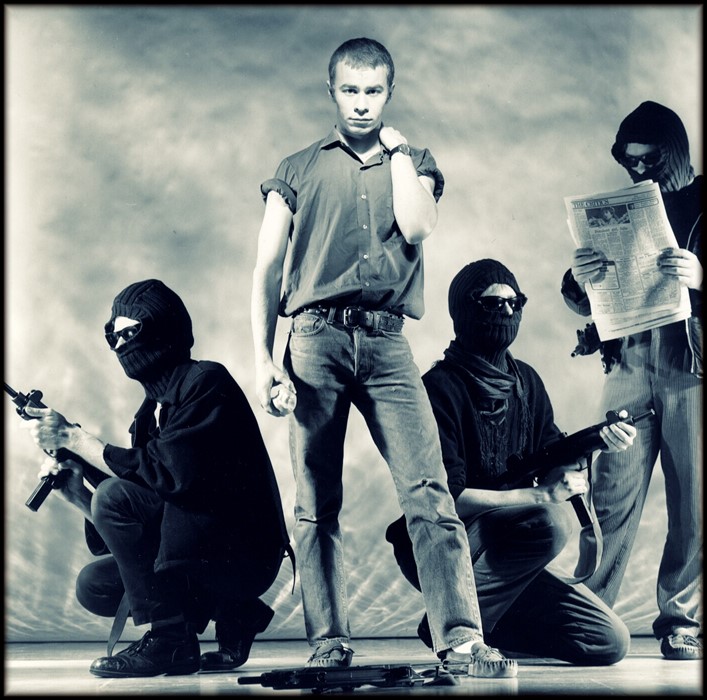
David Glaser: You said you lived in the United States. I remember reading that you were in New York for some time. What’s happening now must not only surprise you, but probably shock you, as a former resident of an American city. Do you understand the dismay and the feeling of the population not knowing what the United States will become in a few months or a few weeks? How do you process that? Because you’re still touring around the world and probably in the United States soon, I don’t know. Are you worried about seeing such a great democracy collapsing?
Matt Johnson: No, we did a tour in America, actually, at the end of last year. We did an American tour, and we were there when the election took place, and the election seemed to be viewed in a more hysterical and fearful way from Europe and the UK than from America. Don’t forget that the majority of people wanted change. You know, I think the American system, like most Western political systems, is very corrupt. Lobbies are far too powerful. And they have infiltrated all Western democracies. And so you have politicians who are more responsive and more accountable to the lobbies that sponsor them than to the general public who vote for them. And I think there’s a danger in considering, you know, that democracy in Western Europe in recent years has also been taking hits.
You know, there’s been a real crackdown on freedom of speech. There’s been increasing censorship. The media is controlled by very few entities. And Biden himself, the previous government was warmongering. He was not fit to serve. He was clearly suffering from some form of dementia, which has now been admitted since he left office. He rarely appeared in public. His foreign policy seemed to be decided by Antony Blinken or Jake Sullivan, who were both extreme warmongers. The system itself is so deeply corrupt and there are such deeply rooted powers, what is often called the “deep state” or the “permanent state,” it’s like a corporate oligarchy. America? It’s not a democracy. You could say the same about much of Western Europe, to be honest. The UK is certainly not much better.
Politicians in positions of power for nefarious purposes
We had Rishi Sunak, who was the incredibly unpopular leader of the Conservative Party, recently defeated in an election. The Labour Party came in and Sir Keir Starmer is now even less popular than Rishi Sunak because people are deeply frustrated, demoralized and distrustful of traditional political parties in Western Europe, the UK and the United States. And it’s not surprising because they lie all the time. We are governed, not by great and powerful politicians, but by very opportunistic people. Not all, but many of them put themselves in positions of power for nefarious purposes. I think there’s a lot of corruption on both sides of the Atlantic, so nothing surprises me.
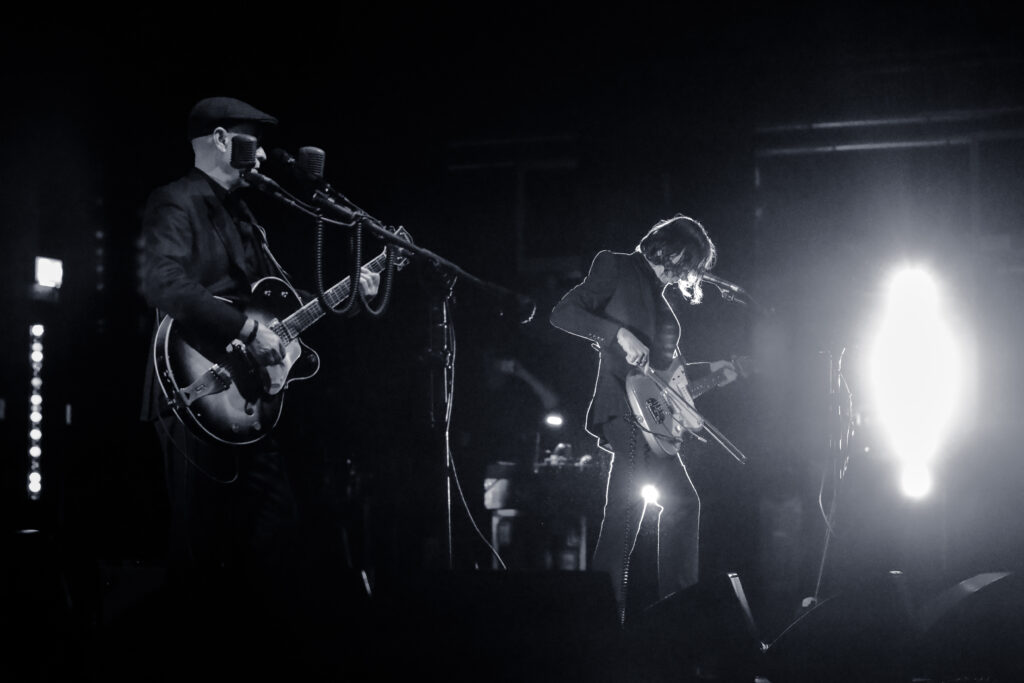
David Glaser: Yes. So I guess “Kissing the Ring of POTUS” is a song that could apply to a lot of people, and not just Donald Trump or Ronald Reagan.
Matt Johnson: Yes, it was really written about the rise of neo-conservatism, neo-liberalism over the past few decades. It’s not about a particular politician, but just that movement, what you would call the extreme center, which has really dominated America and Western Europe and the United Kingdom, where there’s not much difference between traditional political parties. And an example I use. If you go back a bit, a few decades, say to the first Iraq war, you had Tony Blair, who was a neo-liberal neo-conservative leader of the Labour Party. The British Labour Party was once a left-wing party, but it has become much more right-wing. Now, the differences between Tony Blair when he was the leader of the British Labour Party. George W. Bush when he was the leader of the American Republican Party are nil. One might think that ideologically, they would be very far apart but their foreign policies were identical.
They were both pro-war. They both cheerfully went into the Iraq war together. And then people followed them. You had David Cameron, who was then the leader of the Conservative Party at the same time as Barack Obama, leader of the Democratic Party. Again, you would think they are supposed to be ideologically opposed. They had an identical foreign policy to each other and to their predecessors. There is no difference. It’s extremely pro-war and pro-privatization of public assets. The entire system has been compromised and infiltrated by neo-conservatives and neoliberals. And I think that’s why we’ve been in the mess we’ve been in with these endless wars and stripping of assets, not to mention this neocolonialism. You know, what was called globalism was nothing but neocolonialism, meaning these countries will be put in a situation where they will be heavily indebted.
And you have the IMF, the International Monetary Fund, or the World Bank that come in and then in exchange for lending money and so they can pay off their debt, they then take, in exchange, control of these poor countries’ resources.
David Glaser: So I was going to say, we know that well in Switzerland, because all these organizations have equivalent offices here. Let’s see, the World Trade Organization is 30 years old, and it’s the same problem you define, the lobbyists and people who are actually in favor of liberalism are in power.
Matt Johnson: Yes, yes. And the Bank for International Settlements is in Switzerland too, isn’t it, I believe.
David Glaser: Exactly, in Basel.
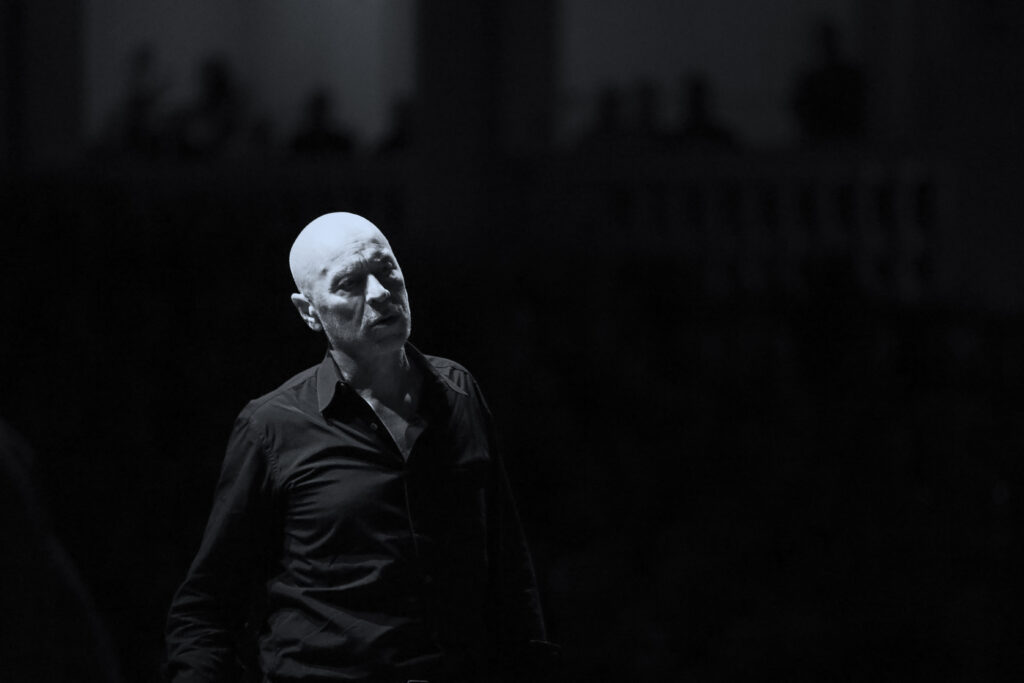
Matt Johnson: An organization that is very, very powerful. And so we’re really governed by what you call these supranational organizations. We don’t get to vote for the World Bank, the Bank for International Settlements, the IMF, the World Trade Organization, these are all organizations that run the world. We have no say in how they operate. In fact, countries have ceased to become sovereign states. They’re more like principalities. And then you have certain politicians who are selected and then presented for election. And if you can have a politician who slips through the net and who really represents the population, he is quickly demonized and destroyed, as we had in the United Kingdom with Jeremy Corbyn, for example, who has always been passionately anti-war and for public ownership. He was destroyed by media like the BBC and The Guardian.
The media, as well as British security services, began to come out to attack him. So we don’t really live in a democracy. We live in a corporate oligarchy. And you know, that said, I think I’d rather live in the countries where we live than in the countries of Soviet-era Eastern Europe. We live in a free-range farm, whereas they lived rather in a battery farm, you know. So, we have our freedoms and we are very lucky in many ways, but I think we shouldn’t delude ourselves into thinking we have the freedom we think we have. Because if you say the wrong thing, you’ll find your career could be “cancelled,” your bank account can also be cancelled. You know, you’re just marginalized. So what’s called the Overton window, that’s what it’s about, a range of things allowed in debate.
As long as you don’t go too far in one direction or another, you can be allowed to have a career and a public profile. If you go too far in one direction and say things that contradict the official narrative too much, it doesn’t matter if you’re not influential but if you’re a very, very high-profile public figure, you could find yourself in trouble.
David Glaser: Oh yes, I’m very aware of that. As a journalist in the media and public media here. I want to talk to you about spirituality or life after death, because I think since “Love Is Stronger Than Death,” I’ve been very attentive to what you write about the afterlife. There are two songs, in fact. Or maybe more on the album. “Life After Life” and “Where Do We Go When We Die”. What is this interest you have in death and what we become after death. Where does it come from?
Matt Johnson: Well, I’ve gone through a lot of grief in my life. You know, not only losing grandparents, of course, but I’ve also lost two brothers, one who died at the age of 24. My mother died when she was quite young, in her early sixties. I lost another brother. I lost my father. And it has therefore had a heavy impact on me. But even before that happened, I was simply fascinated by the fact that we come into this world apparently without our will. We just appear in this world, in this confused state of consciousness. We don’t really know where we come from. We don’t really know where we’re going. We don’t really know why we’re here. And it’s a question that should fascinate everyone. It has certainly fascinated all philosophers and artists throughout time. I can’t understand why someone wouldn’t be fascinated by the meaning of life, the meaning of our own lives individually, the lives of humans collectively and the life of the planet.
It’s something I’ve always found fascinating. But this fascination obviously intensified when people I love and who were close to me, are suddenly no longer there. I just don’t think the energy and essence of a human being simply disappear. I think energy changes form. I think you could compare the human body and brain almost to a kind of virtual reality combination. We experience a certain reality through these five senses, and our five senses are not as acute as we would imagine. For example, we know that dogs have hearing that is much more acute than ours. Birds of prey have much more powerful vision. We know there are things that exist outside our five senses.
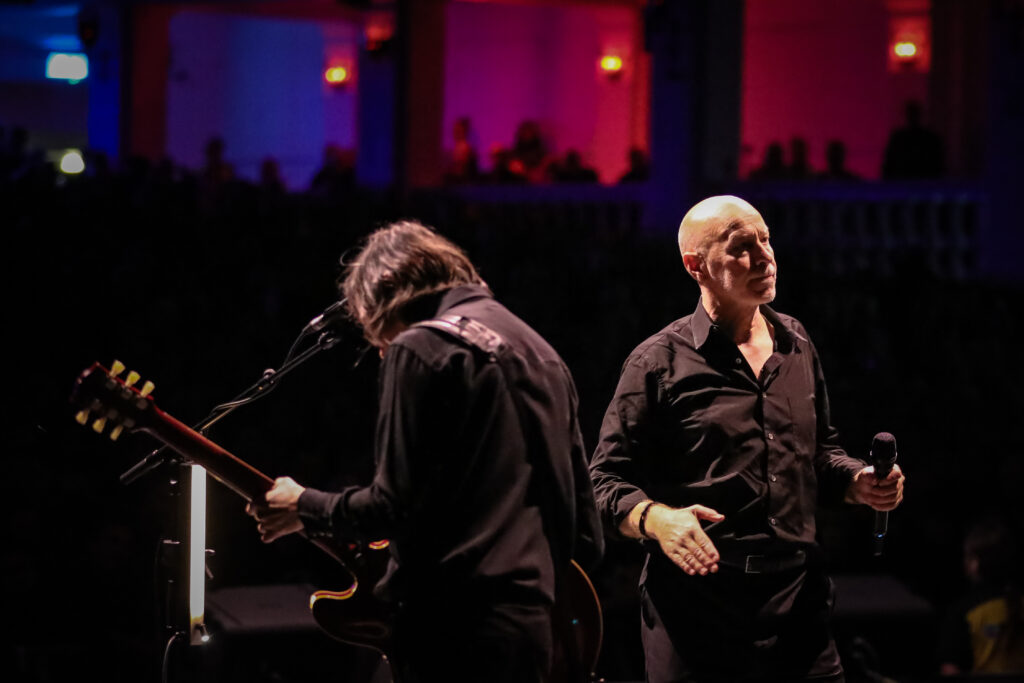
There are all kinds of theories, I don’t know the answers. I’m just asking questions. But there are theories that we live in some kind of holographic simulation, that there is a multiverse, and that our bodies are more like a biological robot or a kind of virtual biological combination through which we experience this. But it’s not really us, that there is an essence of our consciousness that transcends this life and this death. I’ve been asking these questions since I was a teenager, and I suppose I’ll always ask these questions. I don’t know what the answers are. I don’t think anyone does. But the purpose is to keep asking questions, to keep wondering. I have a state of wonder about life. I appreciate my life and I love the things on this planet. The plants, the animals, the trees… I think we live in an amazing space, and I’m just trying to understand more about what I’m doing here.
David Glaser: Yes. And you obviously love some of your comrades from the past and maybe some newcomers as well when you have to go on stage and play. I see the names of James Eller, DC Colard, Earl Harvin. And Barrie Cadogan who is quite new to The The adventure. How did you meet him? And how do you form a band to tour. What are the conditions?
Matt Johnson: Well, I met Barrie through Johnny Marr, and Johnny is obviously one of my former guitarists and friend, and he’s an amazing guitarist. So I’ve had the privilege of working with exceptional guitarists over the years. Barrie is an incredible guitarist in his own right. He’s a wonderful person. He’s a very ethical and moral person. He’s vegan, he’s a hard worker. And he’s one of the most beautiful souls I’ve ever played with. It’s a pleasure to play with him. He’s a lovely man just like the previous people you mentioned. DC Collard, he’s an old friend. I’ve worked with this keyboardist more than any other musician in my career. He’s another very talented and lovely person. James Eller, the bassist with whom I’ve worked for many years is a very quiet and gentle man.
Earl Harvin, the most talented. I’ve worked with amazing drummers, but I would say he’s the most talented drummer I’ve worked with, from a jazz background. Again, a very moral, hardworking, decent man. And I think.
David Glaser: A bit like you. They resemble you, you know.
Matt Johnson: Well, I hope I have those qualities. The most important, there are two paramount things for me when I form a band. First, I want them to be excellent musicians, instrumentalists that I like. You could have a brilliant musician who does too much. I like musicians who are discreet and who are capable of subtlety as well as power in their playing. But the second thing equally important to me is on a personal level, you know, people you get along with because don’t forget that you’re going to be stuck in a bus, in hotel rooms and on stage together for months. You spend a lot of time together, so you need to share a similar sense of humor. Culturally have shared reference points. So these two things and then the third thing is how it goes collectively when you all come together. Basically, do we play well together as a group? And fortunately, that’s the case with this group.
David Glaser: I saw the setlist, a few months ago. I think you were in Australia and I saw a setlist that you play and the songs from Ensoulment to start with, then a selection of classic hits from The The discography. But does it always go like that? Do you sometimes surprise yourself by changing the order of the songs, trying something new or does everything have to be very well rehearsed and prepared and follow the same plan every night?
Matt Johnson: Well, that was for the first part of the Ensoulment tour, and we did two sets per night. We didn’t have much room for spontaneity because you have lighting concepts. You have sound concepts that you can’t just deviate from the defined line. But for this second part of the Ensoulment tour, we’re just going to do one set. So we’ll play some songs from the new album and they will be mixed into one and the same set with older classic songs.
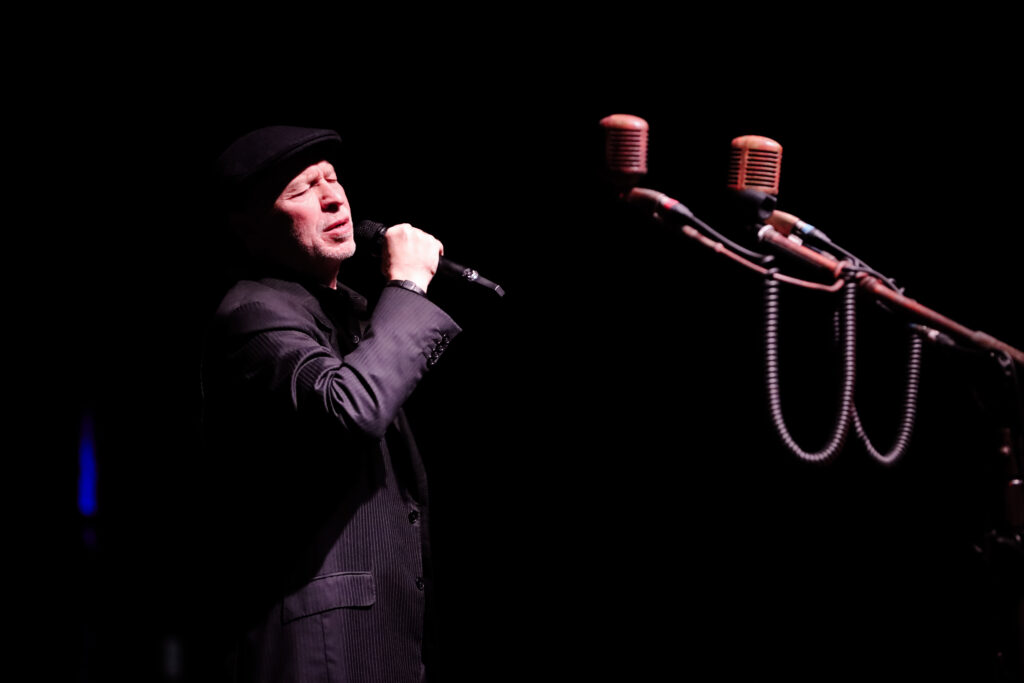
David Glaser: What do you like to play? People must ask. “This Is the Day” or other hits, like maybe “Slow Motion Replay”. What is your favorite song to play among the classics?
Matt Johnson: Well, we’re doing a new version of “Slow Motion Replay,” which we’re currently recording as a new single. To re-release that, because we’ve changed it quite radically. But I really enjoy playing this new version, it’s very nice. “Armageddon Days” is always fun. “Infected” too. “This Is the Day” because it’s my best-known song, and it elicits such an emotional reaction. And so all the songs that I don’t like to play, I don’t play them, I just play the songs that I like to play.
David Glaser: I was very moved by The Outrun, the film. I saw it in Germany recently, and “This Is the Day” was played at the end of the film, and it was such an addition to what had already been given by the film itself. So do you understand that your music can travel in different terrains, different environments like that because of films, but not only perhaps sometimes parties and can it still surprise you to know that your songs have their own life and lives and continue without you?
Matt Johnson: Yes, it was a good film, actually, The Outrun, I enjoyed it. And This Is the Day was used in Guardians of the Galaxy, Disney’s biggest film recently. This song is also often used in advertisements, films and television series. And in fact, Francis Ford Coppola used it in Megalopolis, his latest film, where Lonely Planet features as the final piece.
So, my songs are often covered in the cinema, I also do quite a bit of film music myself. But what I like is that once I’ve finished and released my pieces, they live their own life. They become the soundtrack to people’s lives, for different reasons, of course. Everyone has a particular relationship with the song. And the fact that they are still being listened to more than forty years after I wrote them, that’s something quite amazing.
In fact, a song like This Is the Day, and some others, are even more popular today than they were at the time. So, I’m very happy about that. And I hope my new songs will enjoy similar longevity. That in several decades, people will still be listening to Ensoulment, I hope, as well as all the new songs I will write.
David Glaser: Thank you very much, Matt, and all the best for the future! Hope to see you again soon. We’ll probably see each other in Zurich.
Matt Johnson: I’m looking forward to coming to Zurich, it’s going to be great. We’re really looking forward to it.
David Glaser: I’ll bring some friends. Great! Thank you very much. Goodbye.
Matt Johnson: Thank you for this lovely interview. Goodbye,
Interview by David Glaser, photos by Christie Goodwin and several other professional photographers, thanks to Joel Philipps and Antonella Fragnelli from earmusic.
For The The’s concert in Zurich, go to this link.
And to follow The The, it’s this site.



